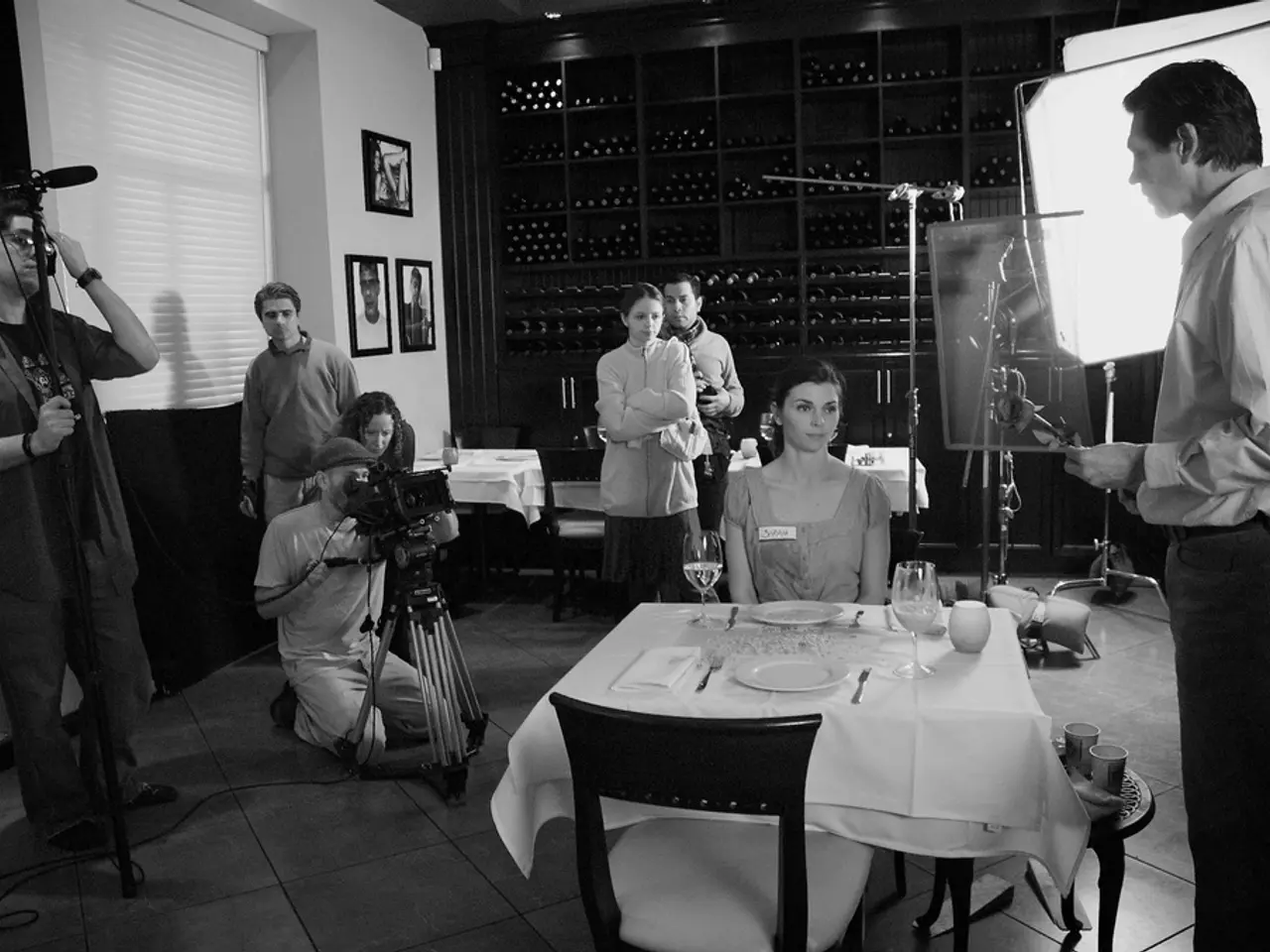Becoming a Cinema Director: A Breakdown
Breaking into the competitive world of movie directing can be a challenging endeavour, but there are opportunities in various areas such as documentaries, TV, cable movies, and independent films. This journey often involves taking other jobs along the way to build a portfolio and pay bills, as well as networking and persistence.
One notable example of a director who started in another field is Alfred Hitchcock, who worked for six years designing dialogue cards between scenes of silent movies before directing his first film, "The Lodger," in 1926. Hitchcock's first film was a silent thriller that received a positive initial response and became his first hit. It was critically and commercially successful from the start, helping establish Hitchcock's reputation in the thriller genre.
Another director who began his career in a different field is Steven Spielberg. After directing television shows, he attracted the attention of executives at Universal Pictures with his first feature film, "Firelight," which premiered in March 1964. The movie was profitable at 75 cents per ticket, marking the start of Spielberg's successful career in the film industry.
Earning a degree can help directors understand the technical aspects of the business and gain credibility with a studio. Many colleges and schools offer degrees in film directing, such as New York University, University of Southern California, American Film Institute, California Institute of the Arts, and University of California at Los Angeles.
Building a portfolio is an essential step for a movie director to gain credibility with film studios and potential investors. Portfolios should include movies directed, educational experience, a resume, contact information, clips showcasing skills in areas such as editing, writing, animation, and cinematography, a listing of film festivals entered and awards won, directing in other areas like music videos, commercials, animated shorts, TV shows, stills and storyboards, and information about companies that specialize in building portfolios. Creating a personal website is also recommended for studio executives and investors to visit.
Internships and low-level jobs can be valuable ways to make contacts and move up in the film industry. Directors often delegate tasks to assistant directors, second-unit directors, or cinematographers. However, a movie director is responsible for a film's overall vision, including actors, shots, script, props, editing, and more. Directors can also write the script, act in the movie, and serve as its producer.
Networking and persistence are crucial for breaking into movie directing. Some directors may find their niche in areas other than studio-backed films, while others may become successful in the mainstream film industry. Regardless of the path taken, the journey of a movie director is one of creativity, determination, and hard work.
In the realm of entertainment, both movies-and-tv represent valuable avenues for aspiring directors, as demonstrated by Alfred Hitchcock and Steven Spielberg who started in television before their successful film careers. Hitchcock's initial breakthrough came with the silent thriller "The Lodger" in 1926, while Spielberg was recognized by Universal Pictures executives with his profitable first feature film, "Firelight," in 1964.








